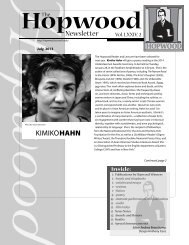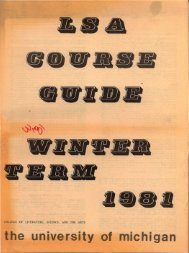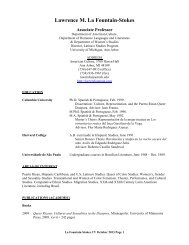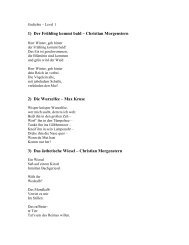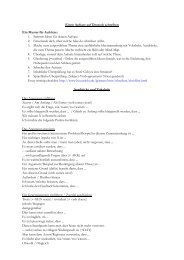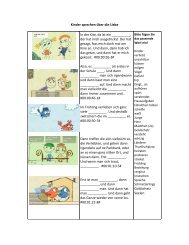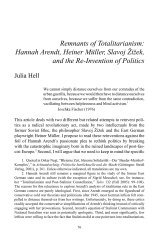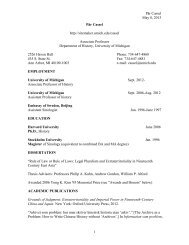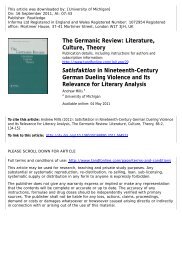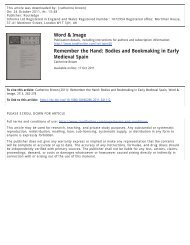Making History Personal: Constantine Cavafy and the Rise of Rome
Making History Personal: Constantine Cavafy and the Rise of Rome
Making History Personal: Constantine Cavafy and the Rise of Rome
You also want an ePaper? Increase the reach of your titles
YUMPU automatically turns print PDFs into web optimized ePapers that Google loves.
Frier, “<strong>Making</strong> <strong>History</strong> <strong>Personal</strong>,” page 16<br />
regretful irony that pervades his entire commentary on <strong>the</strong> death throes <strong>of</strong> <strong>the</strong> Hellenistic monar-<br />
chies helps to establish this lesson. But if <strong>the</strong> Hellenistic world had surrendered on <strong>the</strong> political<br />
<strong>and</strong> military fronts, it was in fact far from defeated ei<strong>the</strong>r socially or culturally. Many historical<br />
poems, which lie beyond <strong>the</strong> scope <strong>of</strong> this essay, bespeak an enduring pride in <strong>the</strong> Greek identity,<br />
particularly within <strong>the</strong> Hellenistic littoral, a pride that continued into <strong>the</strong> Roman Empire. Partic-<br />
ularly poignant examples are “Philhellene” (1906), 49 “Coins” (1920), “Epitaph <strong>of</strong> Antiochus,<br />
King <strong>of</strong> Commagene” (1923?), 50<br />
“The Potentate from Western Libya” (1928), <strong>and</strong> “Tigranocer-<br />
ta” (1929, unfinished), in which non-Greek gr<strong>and</strong>ees adopt, or struggle to adopt, Greek ways <strong>and</strong><br />
learning as markers <strong>of</strong> <strong>the</strong>ir civilization, <strong>of</strong>ten <strong>the</strong>reby incurring <strong>the</strong> scorn <strong>of</strong> “true Greeks.”<br />
In “Homecoming from Greece” (1914), however, more complex feelings are displayed,<br />
even in its ironic title. An Alex<strong>and</strong>rian, returning home from <strong>the</strong> Greek mo<strong>the</strong>rl<strong>and</strong>, expresses<br />
due contempt for <strong>the</strong> Hellenizing barbarians (“remember how we’d laugh at <strong>the</strong>m”), but none<strong>the</strong>-<br />
less admits that <strong>the</strong> Greek identity <strong>of</strong> Alex<strong>and</strong>rians like himself has now become inextricably<br />
mixed “with loves <strong>and</strong> with emotions / that now <strong>and</strong> <strong>the</strong>n are alien to Greek culture.” He con-<br />
cludes with a surprising exhortation: “Of <strong>the</strong> blood <strong>of</strong> Syria <strong>and</strong> <strong>of</strong> Egypt / that flows in our<br />
veins, let’s not be ashamed; / let us revere it, <strong>and</strong> let us boast <strong>of</strong> it.” This poem, with its vision <strong>of</strong><br />
a distinctive “Hellenistic Greek” identity emerging out <strong>of</strong> <strong>the</strong> ruins <strong>of</strong> <strong>the</strong> Hellenistic kingdoms,<br />
remained unpublished during <strong>Cavafy</strong>’s lifetime. 52<br />
Why, <strong>the</strong>n, was <strong>Cavafy</strong> so fascinated by <strong>the</strong> course <strong>of</strong> <strong>Rome</strong>’s rise to hegemony? A like-<br />
ly answer, perhaps, is that <strong>the</strong> Hellenistic military <strong>and</strong> political defeat was a crucial first step in<br />
49 For a sensitive postcolonial analysis <strong>of</strong> this poem, see McKinsey, “ ‘Philhellene’ ” (2009). It is clear that<br />
<strong>the</strong>se poems are more sympa<strong>the</strong>tic to Hellenizing barbarians than some scholars have supposed.<br />
50 The subject <strong>of</strong> this poem is uncertain, but, as Mendelsohn, Collected Poems (2009) 433-434, argues, Antiochus<br />
I Theos (ruled 70-38 BCE), famed for his gr<strong>and</strong>iose funerary monuments in Greco-Persian style, is <strong>the</strong> likeliest<br />
c<strong>and</strong>idate. O<strong>the</strong>rs prefer a later Antiochus, although no king <strong>of</strong> Commagene entirely fits <strong>the</strong> poem.<br />
51 A line from “Homecoming” (είμεθα Έλληνες κ’ εμείς — τι άλλο είμεθα; —) that Mendelsohn, Collected<br />
Poems (2009) 323, translates “we too are Greek—what else could we be?—“ is more accurately rendered “we too<br />
are Greek—what else are we?—.” Compare <strong>the</strong> similar questions in “Philhellene”: “ ‘Where are <strong>the</strong> Greeks?’ <strong>and</strong><br />
‘What’s Greek / here, behind <strong>the</strong> Zágros, beyond Phráata?’ ” (My thanks to Artemis Leontis.)<br />
52 On <strong>Cavafy</strong>’s “Orientalizing Hellenism,” see Jeffreys, Eastern Questions (2005) 88-114 (89-90 on this poem)<br />
<strong>and</strong> Forster-<strong>Cavafy</strong> (2009) 9-15; also Keeley, Alex<strong>and</strong>ria (1976) 108-109, 173-175, where this poem is tied to “Epitaph<br />
<strong>of</strong> Antiochus.” <strong>Cavafy</strong> himself elsewhere expresses personal views similar to those <strong>of</strong> <strong>the</strong> poem’s narrator:<br />
<strong>Cavafy</strong>, Τά Πεζά (2003) 152, with Pieris’s comment at 364-365. Mendelsohn, Collected Poems (2009) 528-529,<br />
advances a heavily ironic interpretation <strong>of</strong> “Homecoming,” arguing from <strong>the</strong> cool silence <strong>of</strong> Hermippus whom <strong>the</strong><br />
garrulous narrator addresses; but this view seems exaggerated, although clearly <strong>the</strong> narrative is not to be taken entirely<br />
at face value. See also Beaton, “Irony” (1981) 521-527; Capri-Karka, Love (1982) 63-64; Leontis, in Leontis<br />
et al., ‘Ithakas’ (2002) 97.<br />
51



